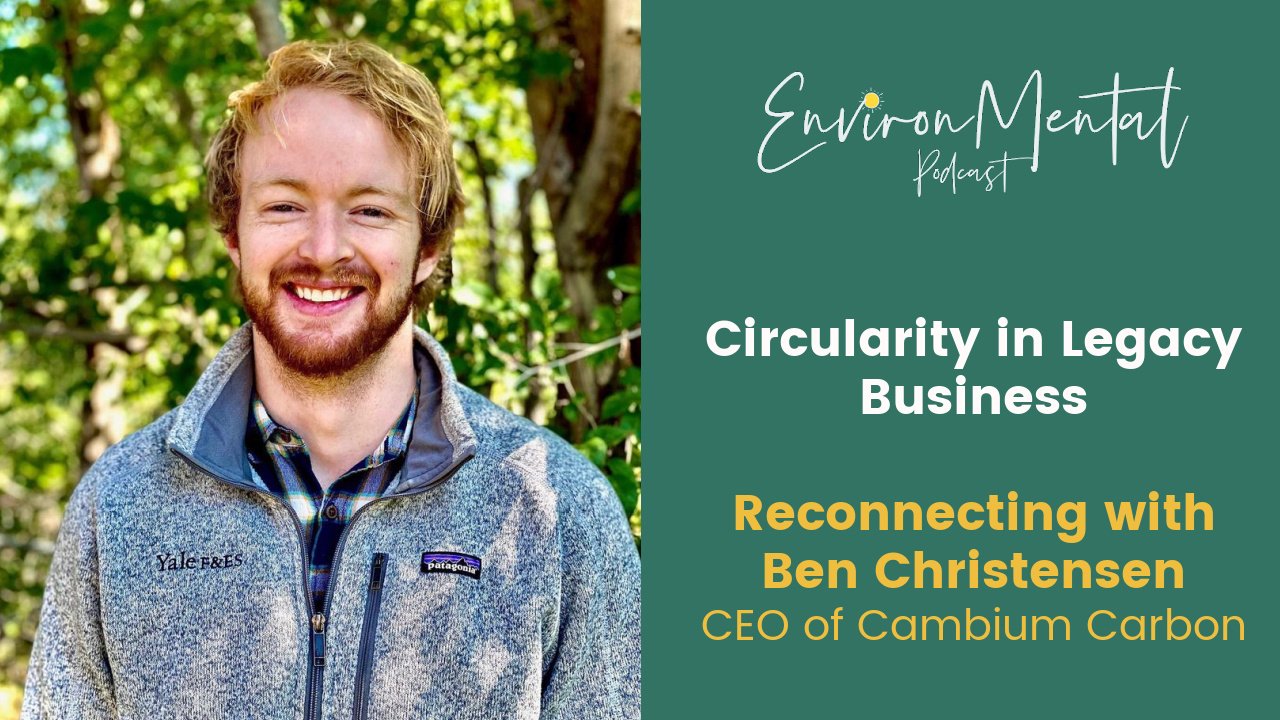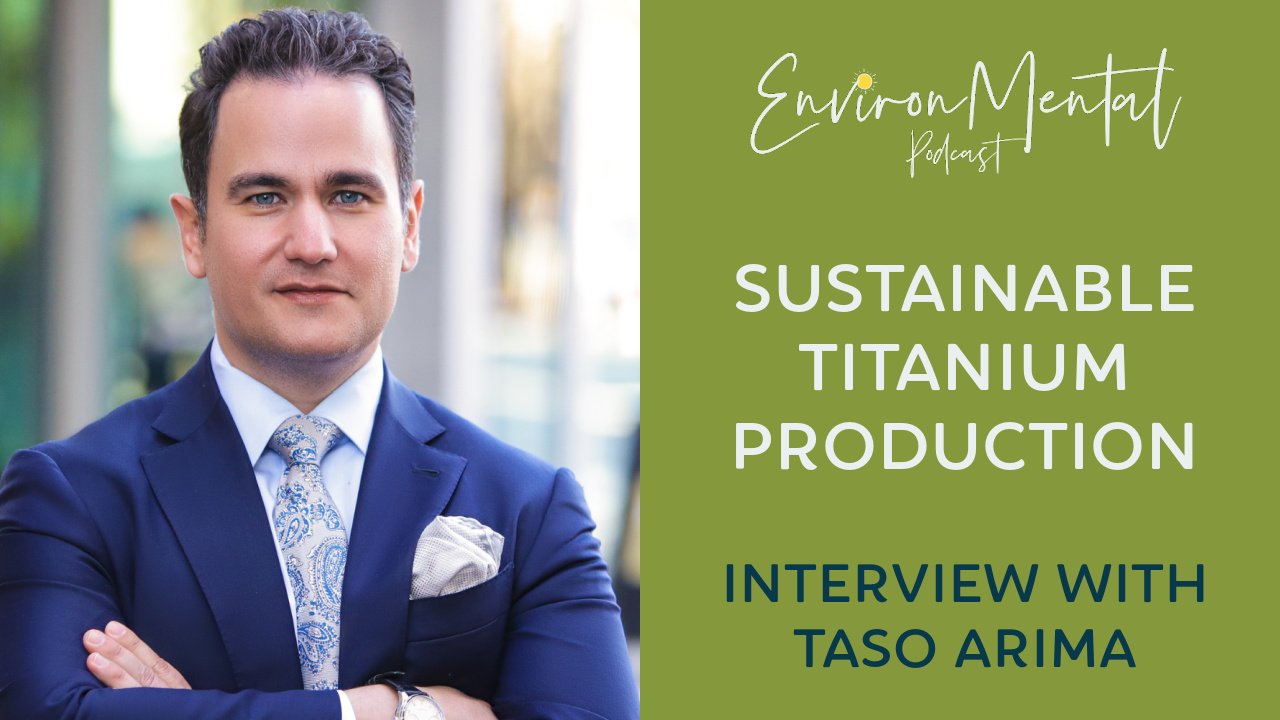“It’s about doing the real work and it’s about doing the real work consistently, it’s not about the publicity or the big hype or the potential.”
Ben Christensen on Creating Circularity in a Legacy Industry
In this episode of EnvironMental with Dandelion, we caught up with Ben Christensen – the CEO and Co-founder of Cambium Carbon – to talk about how Cambium Carbon is creating circularity in city forestry. Cambium Carbon is focused on helping to create (and then scale) local climate solutions.
Our whole model is can you use locally sourced material, process it locally, create new local jobs and with a focus on workforce development, and then reinvest in local natural climate solution.
Ben Christensen on Cambium Carbon’s Business Model
This is Ben’s second time on the show. He was one of our first guests more than two years ago and let us tell you – it felt like we were talking about a totally different business! The mission was the same, but to say that they’ve matured is an understatement. The company has grown to a team of 25 and successfully raised capital to scale. They have also expanded their reach nationally, partnering with 280 different suppliers across the country. And if that doesn’t impress, Cambium Carbon is also partnering with local nonprofits that focus on bringing at-risk youth into the local workforce.
We talked to Ben about everything from a focus on workforce development and growing to scale to what it’s like bringing circularity to a legacy industry.
Circularity in Legacy Businesses
We love learning about businesses that are focused on stopping problems at the source. Not only are they creating tangible solutions in one of the oldest industries in the states, they’re adding circularity into the equation.
Instead of chopping down city trees and turning them to mulch (or dropping them in landfills), cities that partner with Cambium Carbon sell the wood to local businesses that would otherwise purchase their wood from far away! The cities add an additional revenue stream, lower their carbon footprint, and create local jobs. The business owners get to source their raw materials locally, which cuts their supply chain emissions and gives them the opportunity to connect with their community-run mills (which also see growth, of course). This focus on local solutions creates job openings across the whole local forestry industry. And our favorite part?! More interest across this sector gives the city a natural incentive to work towards reforesting their city!
Cambium Carbon offers us one example of how applying innovation and systems thinking, with circularity as a value, makes it possible to bring sustainable change to old business practices. The beauty of this operation is that it’s duplicable – not only to other industries but to scale city by city.
Building for Scale
One thing that Ben touched on that was really important is that a true, tangible solution for the climate crisis is that it needs to be scalable.
We talk to and work with folks that are trying to bring their unique solution to the climate crisis. The most common problem that we see? The solution is too small. It’s one thing to have an idea. It’s another to have a prototype. And still another to build something that can be scaled to the proportion we need to make real change.
Ben stressed the importance of building a strong team and empowering them to do what they’re uniquely situated for. He acknowledged the challenge of transitioning from a great idea to a scalable leader in any industry. He also mentioned the need for caution here.
The Danger of Hype
Ben expressed concern about a trend he sees where some companies are more hype-centric rather than focusing on execution. The problem with hype is that people can say they’re doing a lot of good, but faltering when it comes to the execution breeds mistrust into the whole sector. We see this happening right now with carbon credits and carbon removal.
That said, proper communication is extremely important when it comes to building circularity projects because every part of the cycle needs to function independently and as part of a whole growing business. What makes it challenging is that businesses need to do the work consistently, while striking the right balance with publicity and potential. (We can help with that.)
If you want an example of brand striking the right balance, check in with Cambium Carbon.
Website: https://cambiumcarbon.com/
Linkedin: https://www.linkedin.com/company/cambium-carbon/
Instagram: https://www.instagram.com/cambiumcarbon/




